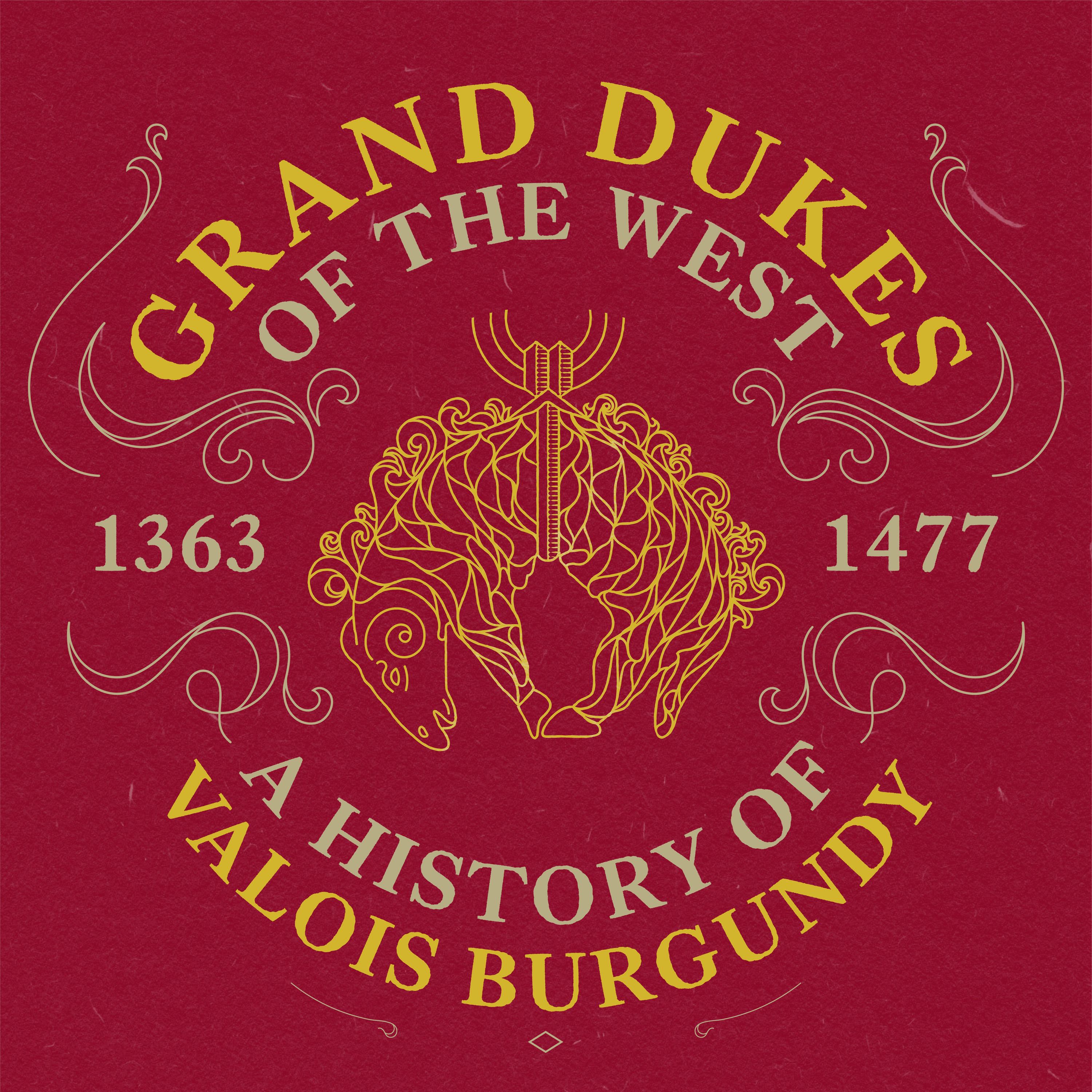La Fayette, We Are Here!
La Fayette, We Are Here!
The Fall of France of 1940, German Victory or French Defeat?
The Fall of France of 1940, the famous military campaign that saw France being conquered by the German army in a few weeks. This subject is one of the most misinterpreted military events in history.
Reading online, you’d believe that the French went to war with sticks to fight German Panzers, or that they fled at the first sign of enemy artillery. While it is perfectly true that the French army was defeated by the German in a short amount of time, the reasons for this are worth exploring and not just on the military level.
Join me as I dig into the deep roots of the French defeat of 1940.
Timecodes:
Introduction
06:10- Prelude to a Defeat
13:25- The Phoney War
19:17- The Great Offensive
28:02- The Final Collapse
36:30 - Conclusion
Music: Marche pour la cérémonie des Turcs, composed by Jean-Baptiste Lully, arranged and performed by Jérôme Arfouche.
Art: Adolf Hitler visits Paris with architect Albert Speer (left) and artist Arno Breker (right), June 23, 1940.
Reach out, support the show and give me feedback!
"Surrender monkeys". “Cowards". “Losers". "A farce of an army". These are words you might have read and heard regarding the French army of 1940. All the same, reading that the German army was “disciplined”, “superior”, "fully motorized” is commonplace. Those assessments are erroneous, damaging and should be clarified, rectified. The armies that clashed in 1940 had been fierce opponents only a couple decades before, fighting bitterly for four years, for very minor gains on either side. The French and the German armies of 1940 still bore the scars of the Great War, but they bore them differently.
The French were not “cowards" and the Germans were not “superior". The reasons for the French quick military defeat in the Spring of 1940 are multiple and complex, they can’t be reduced to some pithy statement. Yet, to this day, mocking the French and glorifying the Wehrmacht is quite common, even in France. So, put your helmets on, strap up and get ready to plunge in the battlefields of 1940 and the Battle of France!
Welcome to "La Fayette, We are Here!", the French history podcast for the American public. I am your host, Emmanuel Dubois, and today we are talking about the Fall of France of 1940, the famous military campaign that saw France being conquered by the German army in a few weeks. I chose this subject because it is one of the most misinterpreted military events that I know of. Reading online, you’d believe that the French went to war with sticks to fight German Panzers, or that they fled at the first sign of enemy artillery. While it is perfectly true that the French army was defeated by the German in a short amount of time, the reasons for this are worth exploring and not just on the military level. I should also state that both my grand-fathers fought it that war, one of them was a POW for almost two years. Frédéric Dubois and Jean Chaminade fought for their country as best they could, just like millions of others. This episode is dedicated to their memories.
I want to clarify something from the get go. Wether they are French, German, American, Russian, Chinese, Sudanese or from any other place on Earth, if need be, people will fight. There are no “people” or “nations” full of brave soldiers and others full of cowards or weaklings. While it is true that some nations have stronger militaristic values than others, giving them and edge in time of warfare, I’ve found in my readings that people will always fight when the time comes.
In the case of France, you’d be hard press to find a country with more military history. During her long history and because of her geographical position, at the crossroads of Western European factions, she has been involved in more wars than any other country over the centuries. From the Gauls to Clovis, from Charlemagne to the Capetians, from the the Hundred Years’ War to the Wars of Italy, from the wars of Louis XIV to the Seven Years’ War from the Napoleonic Wars to the Franco-Prussian War, and finally the First World War. France’s history is riddled with conflicts. I encourage you to listen to my May 2022 Overview of all of France’s history if you need a refresher or a narrative enumerating those conflicts.
Germany as a country was a bit of the new kid on the block at the turn of the Twentieth century. Although the German people is as old as the French, if not more, Germany as a Nation-State was a rather recent endeavour. It can be dated back to the 1860’s and 1870’s when it was built under Otto von Bismarck’s leadership. It defeated France in 1870-71 but it was stopped in 1914-1918 by the Allies, the major part of them being constituted of the French army. Most of what we call the “Western Front” from the First World War was actually in France and in Belgium, not in Germany. This fact as well as the tremendous losses suffered by the French during the Great War will play a key role in the decisions taken in the 1920's, 1930’s and during the war itself.
Prelude to a Defeat
The French and the Germans had fought an absolutely horrifying war in 1914-1918. The French called it La der des der, the “last of the lasts”, that proved to be wishful thinking. It is hard to grasp the consequences and the damage done to the global psyche at the time. In terms of percentage of population, France was the country that suffered the most losses, with 1.7 million deaths and over twice that number of wounded soldiers. At the time, France had around 39 million inhabitants, the war had therefore a major impact on her demography and psyche. You cannot go into a French village today without finding a big monument to the dead of the Great War. In villages of a few hundred inhabitants, you’ll see lists of dozens of men who gave their lives on the battlefields of Northern France. I do not think any of us can really wrap our heads around this. It’s beyond common comprehension and it informed everything that happened to France and the French army in the next several years.
That fact had a direct consequence: French military strategies were meant to avoid another massacre of French soldiers. The French military faced another grave issue, Germany had a bigger population than France. The Great Germany of 1939 counted almost 80 million souls, whereas France had around 40. To account for that demographic gap, the generals needed two things: allies and time. The first was relatively easy, as France had a strong alliance with Great Britain and a colonial empire to back her. The later will prove to be a problem.
You will often read than the French governments of the 1920s and 1930s where often too concerned with allowing workers to have paid vacations and other social issues than preparing for the next war against Germany. While it is true than various left-wing governments, notably the Front Populaire in 1936, did pass laws that improved workers' conditions and benefits, and it is also true that the French army was lacking in some respects, it's completely false to pretend that it wasn't a strong military or that it lacked motivation to defend France.
The French people and politicians were indeed mostly pacifists after 1918, hoping to avoid another war and catastrophic bloodshed. Who could blame them? Imagine having 10% of the people living on your street die in combat or being crippled. Wouldn't you be a pacifist too? But they weren't stupid, they knew that war could happen again on French soil, and they took measures. The most famous one by far is the Ligne Maginot, named after André Maginot, the Minister of War in 1929-1930.
It's actually a network of fortifications that follows the French borders from the North Sea to the Mediterranean. At some points, like in front of the German borders, it is nearly impassable, with barbwires, bunkers, hidden artillery and machine-gun emplacements. Mounting a frontal assault against these would have been suicide, or at least extremely costly in personnel and hardware. The German planners were aware of this, and it will factor in their strategy, as we shall see.
So the basic reasoning of the French government and military is this: to build strong fortifications and to be able to block a German onslaught for a long time, long enough for the Allies to mount a superior force and to attack a Germany worn down by months or years of trying to breach through impenetrable defences. Add to that that, as I mentioned, France had a colonial empire to supply her with food and resources, while Germany did not, and you can understand how this plan made sense. If your fighter in the ring isn't big enough to take on the bigger guy but has lots of stamina, how about dancing around your opponent long enough to tire him and then hit him with everything you've got once the time is right? It is sensible and only in hindsight can we see the flaws in that way of thinking. But before 1939-1940, it made sense.
As for the myth of the French army being under-funded and under equipped, let me stop you right there. France spent more on its military in the 1930's than any other European power. The Front Populaire government, that left-wing government accused by many after 1945 of being the reason for the defeat, actually launched a whole rearmament program in 1936. In 1938, France was spending more on her army than in 1913, while still trying to avoid war with Germany.
When Germany invades Poland in September 1939, Hitler is actually surprised by the declarations of war from London and Paris. He thought they would let it pass, like with Czechoslovakia and Austria. But not this time. Hitler had just lost his wager. The principal generals of the Wehrmacht are almost in a state of panic. A two-front war? Against France , Britain and Poland? That's almost the worst case scenario, that being an attack from the USSR at the same time, but Hitler had secured an non-aggression pact with Stalin in August 1939, so that was a non-issue.
Nevertheless, the French needed a long, procrastinated war to win. The Germans needed the exact opposite: a quick and decisive action to knock France out of the war. Both would spend the next few months to prepare for this, only one side would triumph.
The Phoney War
Poland fights bravely, but is vanquished in a few weeks, overwhelmed by the German Army. The country is conquered and divided between Nazi Germany and Soviet Russia, two impossible allies. As they had done with Czechoslovakia, the French watch. They try to learn though, to find holes in the German way of war. Although they understand that the Germans favour quick and powerful action, they fail to understand the mechanics of it.
The Germans know they need to win any major conflict quickly. They don’t have resources for a long war, as the French do. This informs their battle plans and their way of thinking about war. One man in particular, Eric von Manstein, understood that very well. This German General will create the plan to defeat France. Having fought her in the First World War, he knows perfectly what her army is capable of. And he understands better than any one, the crucial role of tanks in modern warfare.
Hitler wanted to attack France right after the victory in Poland. He wanted to regroup and to launch a major offensive in November 1939. He understands that time plays in the Allies' hands and he doesn't want to give it to them. But his generals oppose the idea, they don't think that the German army can regroup and redeploy on such a major scale so quickly without being crushed by the Allies once they'd reach Belgium or France. The German High command, the OKH, told Hitler that it would be folly, that the French army was stronger, better equipped and quicker to mobilize than the Polish. The tensions run so high in Berlin that some military consider removing Hitler from power. They fear that a frontal assault against France would result in another massacre of hundreds of thousands of young German soldiers.
This back and forth between Hitler and his generals keeps going in October and November. Von Manstein agrees with Hitler actually, he thinks that Germany must strike as soon as possible, but he also thinks than striking in late Autumn or early Winter would be a mistake. The army wouldn't be able to progress quickly and victory wouldn't be achieved. So it is decided to wait until the Spring of 1940.
While this is going on, what are the Allies doing? Well, not much. The French do launch an attack in 1939 in the Saarland region in October 1939, but they stop in their tracks. They still hope that the naval blockade as well as the superiority of the Allies on paper will force Hitler to negotiate. They want to win, but to avoid a major war if possible. They still hope that reason could triumph, that a show of force would be enough, without the need of actually waging war. They were wrong. There was no reasoning with Adolf Hitler. He played them in the 1930's and they were still hoping.
Nevertheless, the whole country mobilizes for war. Every able and trained man is recalled. The French economy actually adapts itself to war conditions way quicker than the German's. The whole country is on the warpath. But in the end, the French and British armies just wait. The French trust that the Ligne Maginot would hold in case of a frontal assault, so they position their best troops near the Belgian border, ready to enter and help neutral Belgium should it be violated like in 1914. They also count on the Belgian fortifications to slow down the German advance somewhat.
The other major military action happens in the Baltic countries. The USSR invades Finland in 1939. On his side, Hitler launched an attack against Norway in February 1940. The Allies decide to react. This would reinforce their positioning against Germany, prove their strength and deprive Germany of Norwegian steel. Finland is defeated by the USSR in March 1940 but the Allies still prepare for an offensive. There is a backlash in France though, with the government of Édouard Daladier being defeated because of their apparent lack of progress in the war. He's replaced by Paul Reynaud who would stay in place until the final defeat.
The British and French expeditionary corps will fight the Germans, even winning encounters. For example, French troops managed to take the port of Narvik in May 1940, retaking it from the Germans who had to retreat. With their Polish and Norwegian allies, they managed to push the Germans back somewhat. But it will all be for nothing. By the time the French in Scandinavia earn these victories, their counterparts in France were being crushed. On May 10h 1940, the German army had launched one of the most famous offensives in history.
The Great Offensive
Let's talk a bit about the forces in place here. The French and the German armies are the strongest in the world at this time, the USSR being sort of a wild card at this point. The French have over 2,500 tanks, whereas the Germans have around 2,300. Plus, the French tanks are often superior to their German counterparts. The Somua S-35 is a fantastic medium tank, at the B1 Bis outclasses anything the Germans have. The French also have more field guns, over 10,000 of them, versus 7,000. The Germans do have more airplanes, around 4,500 versus 3,500 on the Allies' side. The French have over 5 Million men enrolled in the army, in one way or another. Around half of that number will actually be on the frontline. The Germans have more soldiers, but the British, Dutch and Belgian soldiers help level things a bit. We are talking about huge armies here, with modern and powerful weaponry. Each capable of inflicting serious damage to the other.
Von Manstein had had an idea. If the Ligne Maginot is impregnable and if the French forces expect us to go through Belgium, like in 1914, why don't we strike elsewhere? Sure, but where? The only remaining spot is the Ardennes, that densely forested area, quite narrow with difficult terrain. It is so hard to navigate that the French consider it impossible to go through, at least not quickly. They believe that should a German offensive attempt it, it would be so slowed down that they'd have days to reposition themselves and to counter them. They were wrong, it would take the Germans two days to move through the Ardennes.
The final concept was actually quite simple. To attack Belgium, to force the Allies to commit there, only to launch a huge offensive through the Ardennes, to cut the French forces in two and to go deep into French territory. Once that is achieved, the German forces would pivot to the northwest to encircle and destroy the cut off Allied forces. That very bold plan had many holes, many ways it could fail, but the Germans knew what they were doing, and they got lucky.
To achieve success here, the Germans needed to act fast, very fast. Therefore, their officers on the ground were given lots of leeway. The German high command trusted its general, colonels and captains to make the right decisions at the appropriate time when need be. A battlefield is in constant evolution, and one cannot always wait for orders. Plus, because of the changing conditions, an order from three hours ago could prove disastrous. Germans officers could alter or downright refuse to obey if they judge it to be the right call. The French didn't have that liberty.
Meet Maréchal Gamelin. This French officer was in charge of the French army in 1940. Do not mistake him with Général Vuillemin, who was in charge of the French air force. Gamelin is, to put it kindly, a war late. He wants to control everything, to operate in a, quote "rational way", end quote. But he simply do not have the tools to do that. The French lack radios and telephones, they depend on messengers and pigeons. Plus, their generals are often far away for the front, so when a clear line of action is needed, it can take hours for the orders to come back, often too late. The French officers on the ground are as competent as their German counterpart, but they are not allowed to take the same initiatives.
The Germans also committed most of their forces in this Ardennes offensive. By doing so, they punched trough the French army, cutting it in two, as was planned. But there is a huge risk here. Ask any general, from Julius Caesar to Napoléon, what their worst fear is on a battlefield. They'd all give the same answer: to be outflanked. If an army manages to circle around you, to attack you from the side or the rear, you are dead. By moving so quickly in such a narrow area, the Germans' flanks were exposed. If the Allies had good communications or liberty of movement, they could counter attack and destroy the German advance. Luckily for the Wehrmacht, they lacked both.
Thanks to von Manstein's ideas, the Germans had organized their tanks in divisions, the famous panzer divisions. This basically means that the tanks form their own units with their own command, giving them more use and flexibility. The French still thought of their tanks as infantry support, so they do not concentrate them like the Germans. They are deployed all over the front, therefore they are always outnumbered. The French air force is disseminated in the same way, preventing it from regrouping and striking in force. The French defensive thinking was playing against them. By wanting to cover all their bases, they were in fact covering none of them properly. A huge flaw, one that the Germans exploited to the maximum, sometimes not believing their luck.
The French committed more troops in Belgium, believing for some time that the offensive in the Ardennes was a diversion. There were 41,000 German vehicles passing through the area, that's one hell of a diversion! Funnily enough, the Germans would have the same reactions to the Allies landing in Normandie in 1944, that it was a diversion. History has a wicked sense of humour. So the best French armies were entering Belgium for nothing, and the rest of the army was defending the Line Maginot against an offensive that wasn't coming. This allowed the Germans to manoeuvre at will. On May 13th, headed by general Heinz Guderian, the Germans entered France through Sedan. On May 15th, the French government and HQ realized what was really going on. The Germans had won their wager, they had entered France where they wanted and cut her army in two. They were now in a perfect position to pound it until it collapsed.
Guderian recognized that he should push westward as fast as possible, exposing his flanks even more, to disrupt the Allies. The German high command was actually against this, but Guderian use the trust and flexibility allowed to the German officers of 1940 that I mentioned, with great success. Hitler is scared of that, thinking that the French are regrouping fast enough to attack the German flanks. He orders the panzers to stop on May 17th, but some keep going, including those commanded by General Erwin Rommel, a future superstar. The French do manage to counter attack in some areas, like at Montcornet where the hastily established 4th division cuirassée, or tank division, manages a small victory on the same day. It was commanded by one of those competent French colonels: Charles de Gaulle. Nevertheless, by that point, everything was going well for the Germans, everything was going wrong for the French.
The Final Collapse
The French knew that they were probably doomed at this point, but they still put up a fight. Gamelin was replaced by general Weygand, but he won't be able to change a thing. These French generals had an another thing going against them: they were old. Gamelin was 67, Weygand 73. Von Manstein was 52, Guderian 51, Rommel 48. There was a generational gap between the two armies' high commands, and it showed. The French planners were not as fast nor as audacious as their German counterparts. The French soldiers paid the price with their blood and lives.
The French keep reacting to the German movements. The latter have the initiative, they move quickly and decisively. By late May, the Allies have lost any chance of counter attacking effectively. On May 25th, the British Expeditionary Corps heads for Dunkerque, in the hope of going back to Britain. Luckily for them, Hitler had ordered the panzers to stop on May 23rd, again. We are not totally sure as to why he gave that order. Was he fearing a German exhaustion? Did he want to show mercy to the British in the hopes of making peace later on? Who knows, but the British had won some precious days. It actually allowed the French to mount defences on the rivers Somme and Ainse to protect their British allies while they were evacuating.
The part played by the French during the famous evacuation of Dunkerque is often ignored or downplayed in anglophone popular history, which infuriates me. But don't take my word for it, listen to German General Von Küchler who was trying to prevent the British from evacuating. In his war diaries, he wrote, quote: "Despite our overwhelming numerical and material superiority, French troops counterattacked in several places. I can't understand how such brave soldiers, fighting in various places at one against ten (sometimes even one against thirty), still manage to find enough strength to go on the assault: it's simply amazing! I find among the French soldiers of Dunkerque the same ardour as that of the poilus of Verdun in 1916. For several days hundreds of bombers and guns have been pounding the French defences. However, it is still the same thing, our infantry and tanks cannot break through, despite some ephemeral local successes. Dunkerque proves to me that the French soldier is one of the best in the world. The French artillery, so feared in 14-18, once again demonstrated its dreaded effectiveness. Our losses are terrifying: many battalions have lost 60% of their strength, sometimes even more!" He then concludes by saying "By resisting about ten days to our forces, which were significantly superior in terms of numbers and resources, the French army achieved a superb feat in Dunkerque that is to be commended. It certainly saved Britain from defeat, by allowing its professional army to reach the English coast", end quote.
Thanks to the French army, as well as the Royal Navy, Air Force and the famous fleet of independent boats that came from Britain, the British managed, to save over 330,000 men and the French 130,000 between May 28 and June 4th. But this battle had exhausted the last of the French resources. What was left of the French motorized units was either destroyed or captured. The Germans kept pressing on.
Despite their valiant efforts, the French soldiers could not prevent the inevitable at this point. The fighting actually intensified in the last week of May and in early June. The French soldiers and officers were realizing that their country was about to be conquered, so they fought desperately, inflicting more losses to the Germans, but also suffering more. A keen example of these bitter combats are the ones that happened on the Loire river close to the town of Saumur.
By mid-June, the Germans had completely disorganized the French defence system. The French were scattered and their government had fled to Bordeaux. They try to stop the German advance, to save what they can. To that effect, the Cadets of the Saumur Cavalry School mounted a defence on the river. 2,500 cadets, ill-equipped, young and not trained enough, without artillery support, held 45,000 Germans with hundreds of guns for two days. They earned the respect of the Wehrmacht and were given military honours after their surrender. Among these young lads figured Maurice Druon, famous writer of the Accursed Kings series who also played an important role in the Résistance during the war.
Nevertheless, France falls apart. On June 10th, having waited for the very last moment, Mussolini declares war on France, forcing the French army to defend another front. They will do so by the way, not letting the Italian army through, but the country cannot hold. On top of the military debacle, there is a humanitarian crisis. People from Northern France, Belgium, the Netherlands and Luxembourg fled their homes to avoid the German advance. They started to walk south, clogging the roads, suffering from hunger, thirst and often attacks from the Luftwaffe. Eight to ten million of them walked on the French roads during that Spring of 1940, hoping for salvation.
General Weygand knows that all is lost. He wants to ask for an armistice. He is supported by Marshall Pétain, the famous hero of the Great War who was called back by the despaired French government to help with the situation. Pétain is 84 years old at that point. It doesn't mean he's wrong about the armistice, but it's telling about the situation. Following the resignation of Paul Reynaud, the head of government, on June 16th, Pétain takes his place and immediately calls for an armistice on June 17th.
Hitler intends to be inflexible and to impose his will to the French. He calls the French at Rethondes on June 21st. He wants the French to sign the armistice in the same train wagon in which the Germans had signed theirs in 1918. He wants to humiliate the French, to rub it in their faces. France is to be divided in two zones, the north occupied by Germany and the south "free", headed by a French government, the future Vichy government of Marshal Pétain. The French army is reduced to 100,000 men. France's sovereignty is no more. One half is under military occupation, the other is a vassal State of Nazi Germany. France had fallen.
Conclusion
The consequences of the defeat of 1940 are deep and complex. France will be divided during the war between the Free French forces, the Résistants and the collaborationists. Over 2 million French soldiers had been captured and will return very gradually back home. Over 35,000 of them will die in German POW camps. As for the losses, the French had suffer over 60,000 deaths and 200,000 wounded, worse than most moments of the first World War. The Germans had about half as many losses. France was bruised, shaken. It's very identity seem weakened by the quick German victory.
The French military had definitely underperformed. The high command was completely out of touch with the military realities of the time, not even acknowledging the recommendations of their own officers on the ground. The lack of modern communications also proved a huge issue. Add to that the very rigid command structure of the French army and you have a recipe for disaster. More than any other disadvantage, it is to me the key of the French defeat: lack of communication and rigidity. The French officers recognize this in 1940 and will work to fix those issues in the French army.
My goal here was not to raise the French flag and to yell “Vive la France !”I’m not here to restore French honour or to condemn the Germans. I’m here to try and shed some light on a historical event that is misunderstood, misinterpreted and damaging. I also wanted to talk about the 1940 alone, without all that came after for France. That, my friends, is a whole other can of worms, an even nastier one.
As for the memory of the campaign, the French themselves want to forget about 1940. They don't honour the sacrifices, the bitter fighting, the thousands and thousands of dead and wounded. What they want to remember from the war is the Résistance. But to me the Résistance did not begin with De Gaulle's radio message of June 18th 1940. It began with the first French soldier firing at the German army in May 1940. All these men fighting to protect their country were resisting invasion, they were the first Résistants! They should be remembered just like their predecessors in 1914-1918 are remembered.
Hopefully you too, dear listeners, will remember that the Fall of France was as much a French defeat as a German victory. That the German generals definitely outsmarted their French counterparts. But you will also remember that the French soldiers were not "surrender monkeys". That they did their best in an impossible situation and often paid the ultimate price. France fell in 1940 and never totally recovered, never being again as powerful and influential on the international scene. But I don't think the French should be ashamed of that. They should outgrow it and move on. Some do and some don't.
Thank you for listening, au revoir.
Podcasts we love
Check out these other fine podcasts recommended by us, not an algorithm.
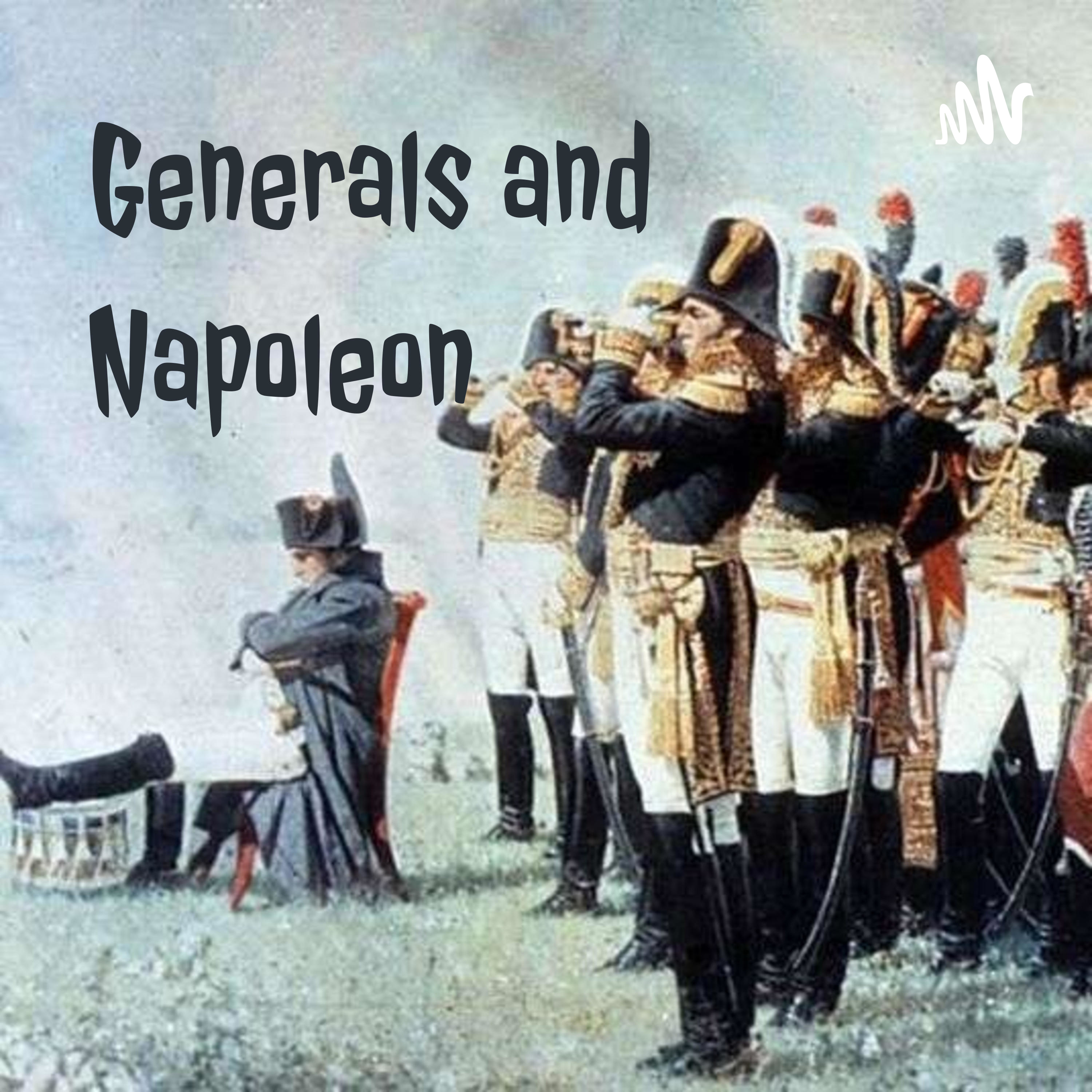
Generals and Napoleon
John W. Viscardo
Shipwrecks and Sea Dogs
Rich Napolitano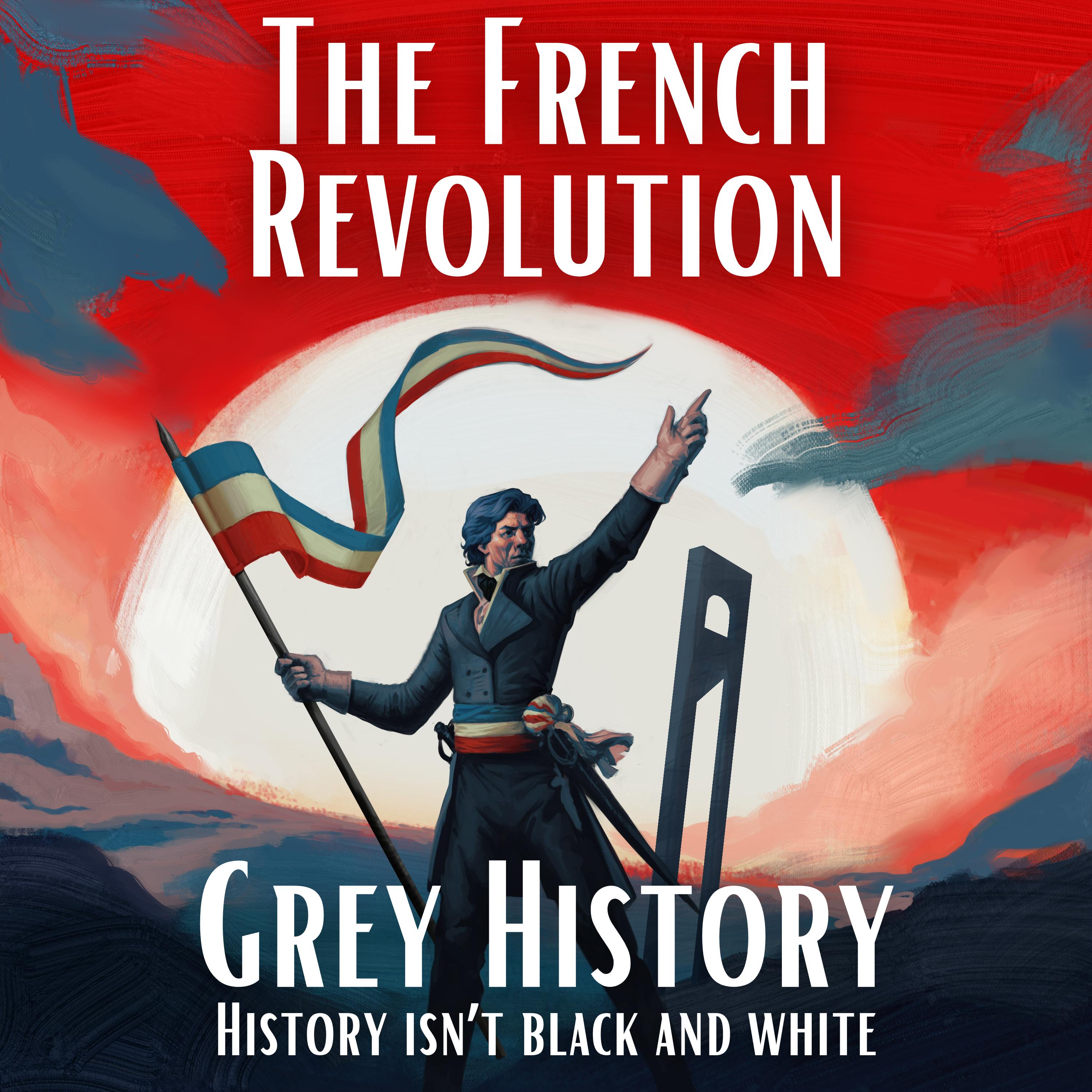
French Revolution & Napoleon (Grey History)
Grey History (William Clark)
The Life and Times of Frederick the Great
Alec Avdakov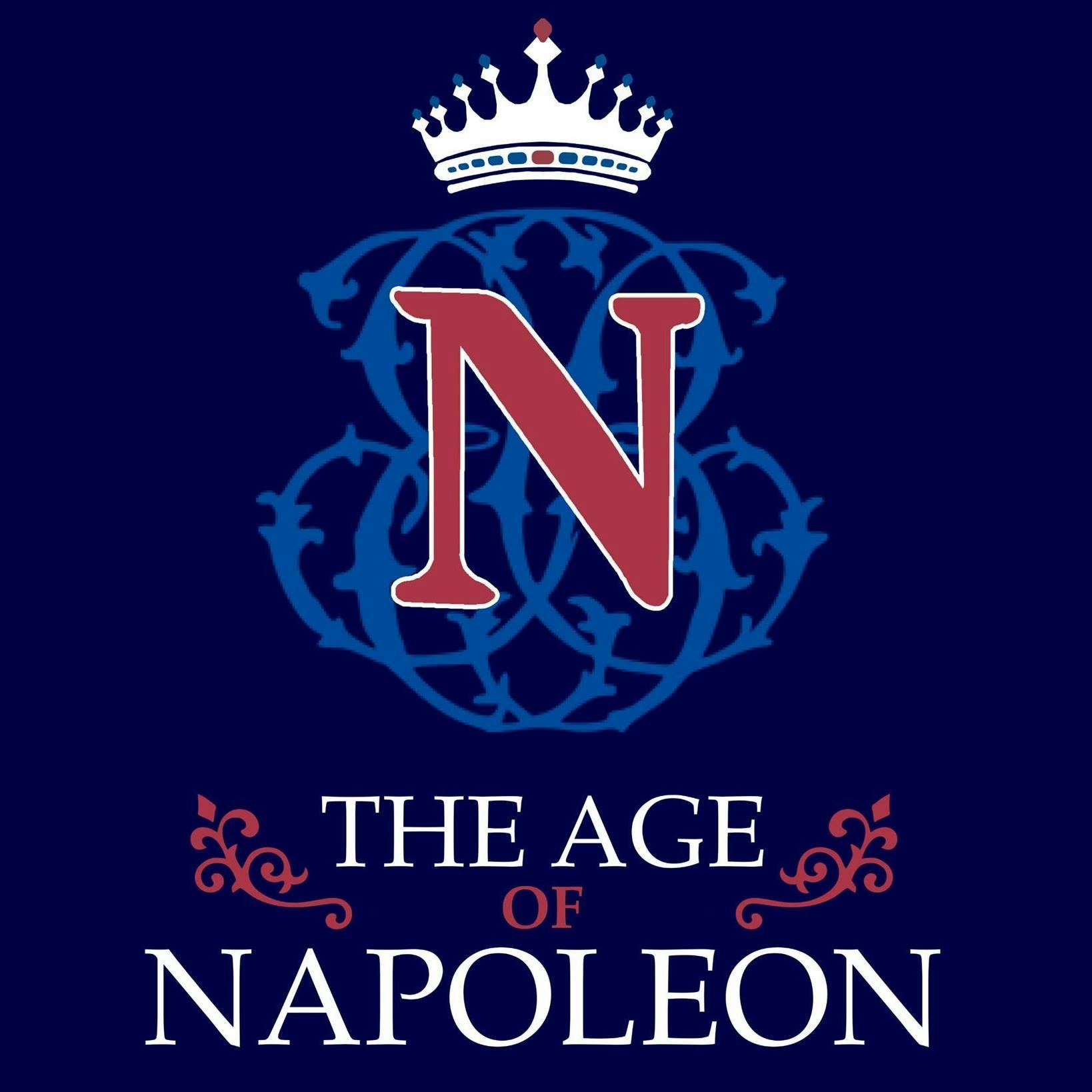
The Age of Napoleon Podcast
Everett Rummage
The Siècle History Podcast
Evergreen Podcasts
The Napoleonic Wars Podcast
Zack White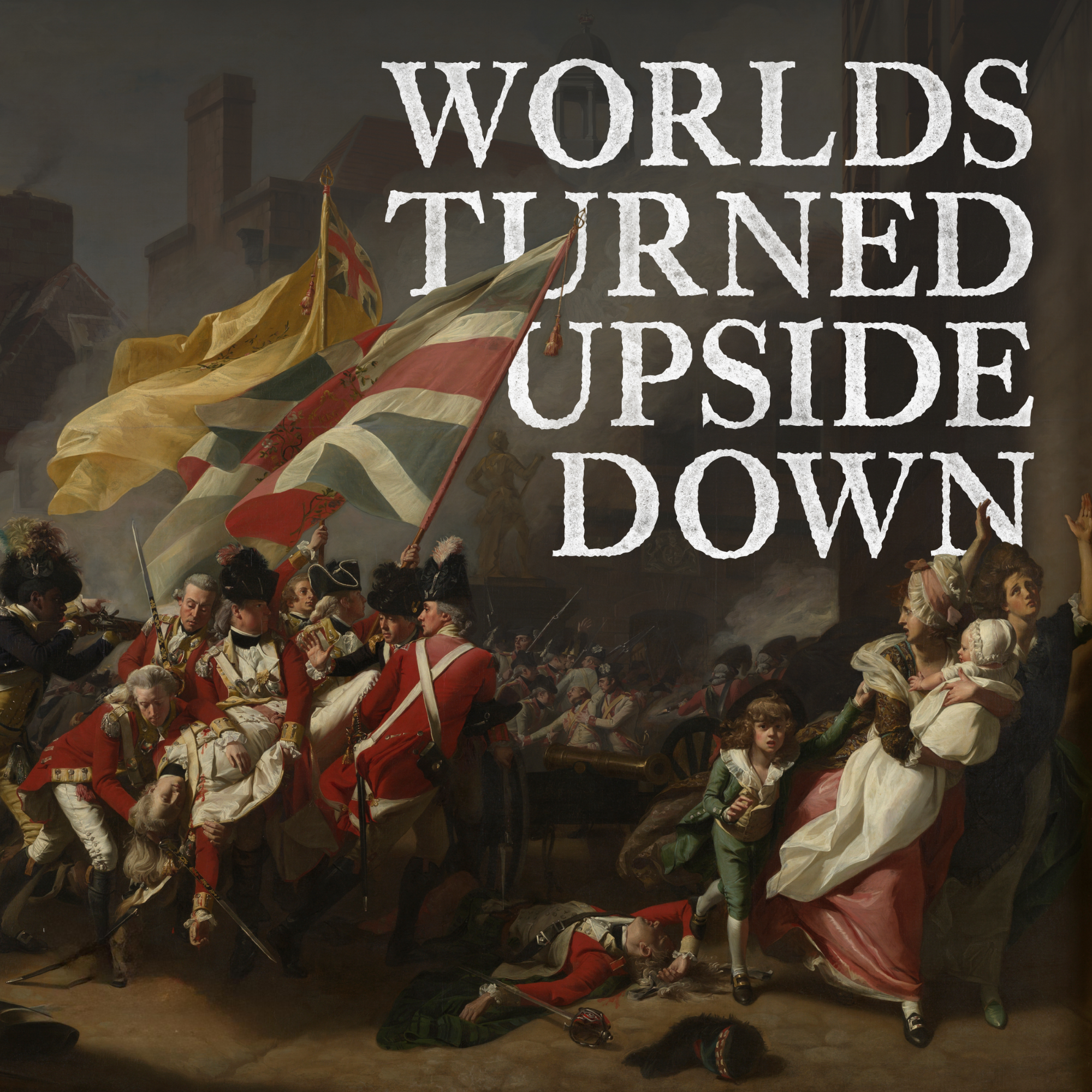
Worlds Turned Upside Down
Roy Rosenzweig Center for History and New Media
Empire-Builders
David Mainayar
Battles of the First World War Podcast
Mike Cunha
New York, Quebec, and The Water Route to the Center of the World
William Matthews
Deep into History
Deep into History
Battle Royale: French Monarchs
Ben Clarke and Eliza Sommers
A History of Japan
Justin Hebert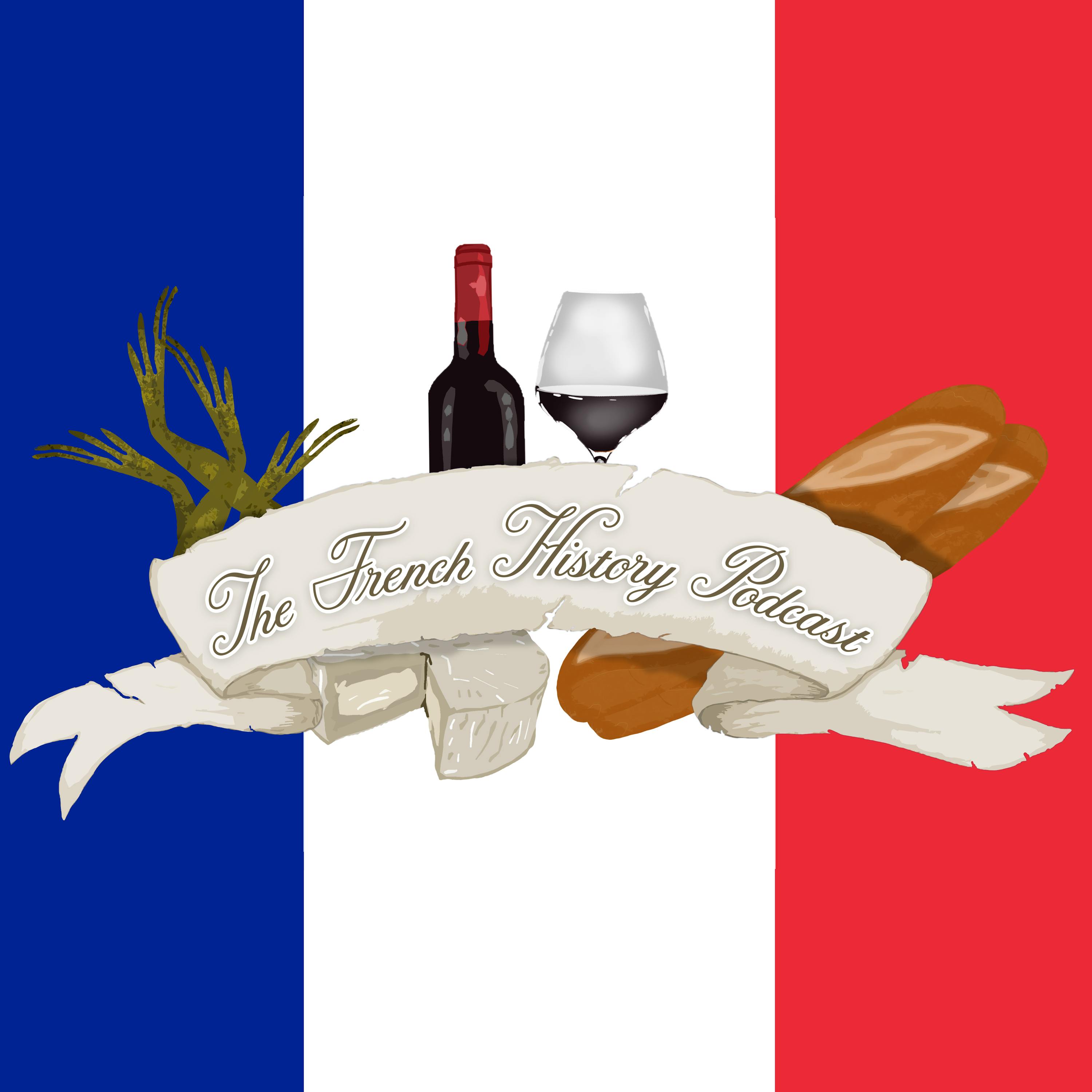
The French History Podcast
Evergreen Podcasts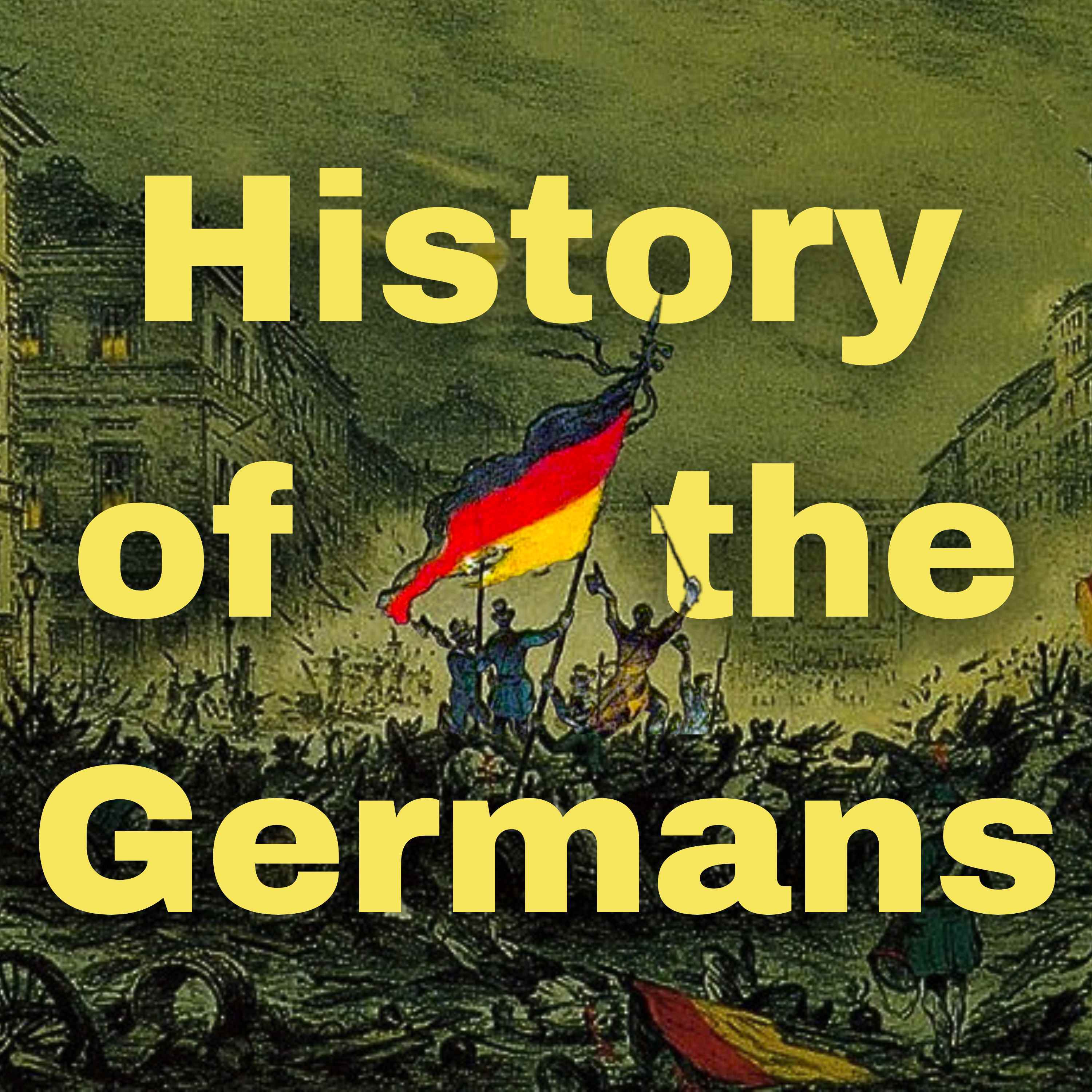
History of the Germans
Dirk Hoffmann-Becking
Half-Arsed History
Riley KnightFrench-Canadian Legacy Podcast
French-Canadian Legacy Podcast
The History of England
David Crowther
Canadian History Ehx
Craig Baird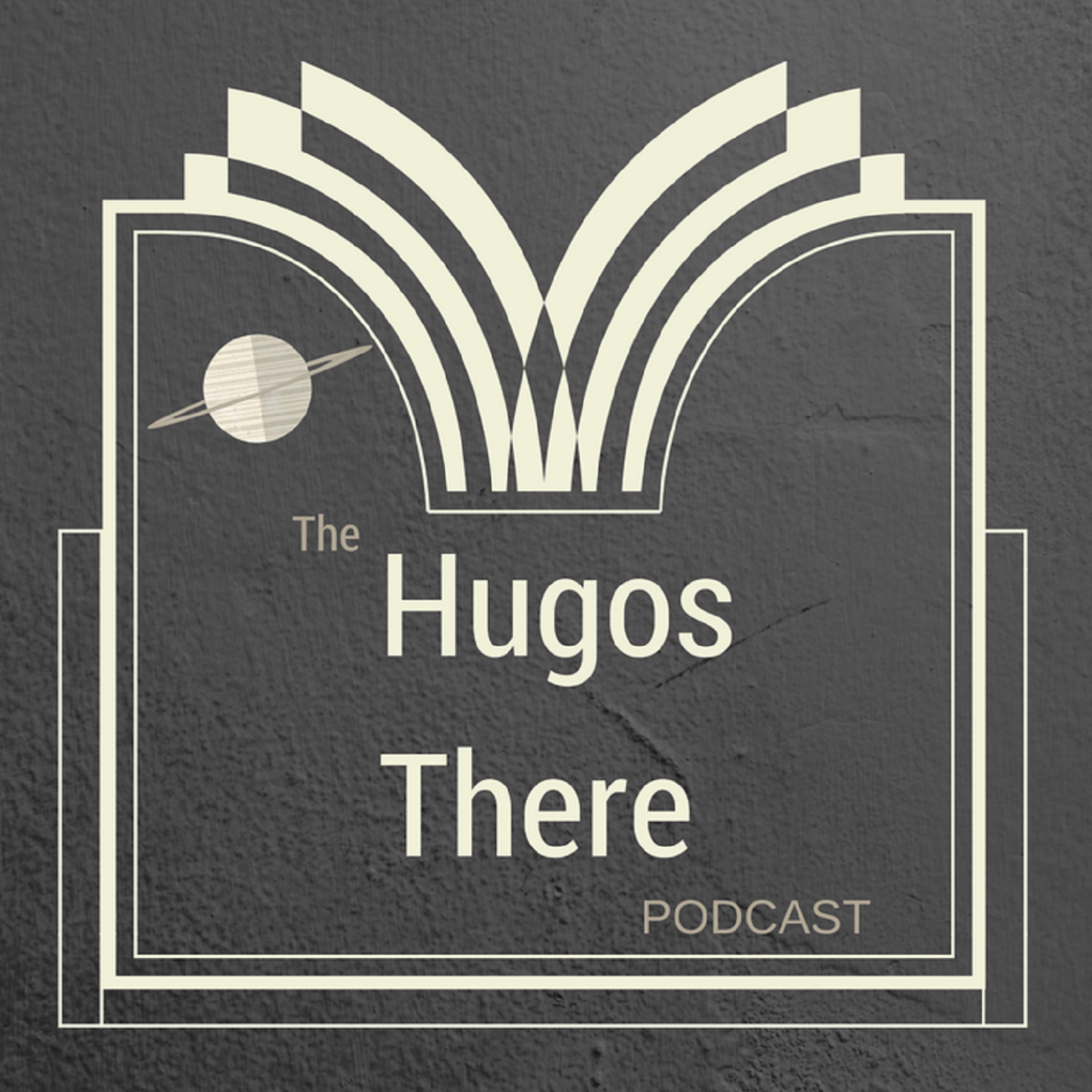
Hugos There Podcast
Hugos There Podcast
Hugo, Girl!
Hugo Girl

